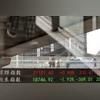By Charlotte Yang
Chinese stocks listed onshore suffered their biggest drop in more than four years as traders grew impatient over the pace of Beijing’s stimulus measures and weak holiday-spending data hurt sentiment.
The CSI 300 Index plunged 7.1 per cent, erasing its advance from Tuesday, when mainland markets reopened after the Golden Week holidays. While the gauge pared declines after the Ministry of Finance said it would hold a briefing on fiscal policy, selling pressure resumed to hand the measure its first loss in 11 days. An index of Chinese stocks listed in Hong Kong fell further after sliding more than 10 per cent Tuesday. Meanwhile, the Golden Dragon index of US-listed Chinese stocks declined 3.7 per cent.
While equities rallied in recent weeks after a series of policy announcements designed to support the economy, enthusiasm over a stimulus-driven equity surge is cooling due to the lack of any further major initiatives at a key policy meeting Tuesday. A growing number of strategists and fund managers say Beijing needs to back up its spending pledges with real money, while others caution that the rally had gone too far too fast after benchmark indexes surged more than 30 per cent in a matter of days.
“The market is tussling between expectation for more stimulus and economic realities,” said Yi Wang, head of quantitative investment at CSOP Asset Management Ltd. “Investors want to see a quick translation from stimulus measures into improving corporate earnings, better macro data — whether that’s with inflation, employment or local government debt. But there is a time gap between that expectation and the economic reality.”
At a briefing that will start at 10 a.m. local time on Saturday, Finance Minister Lan Fo’an will introduce moves to strengthen fiscal policy to shore up growth, and answer questions from reporters, the State Council Information Office said in a statement Wednesday.
Stock investors have looked for greater fiscal spending to arrest a slowdown that threatens to put the country’s 2024 target of about 5 per cent growth out of reach. Banks including Morgan Stanley and HSBC Holdings Plc expect 2 trillion yuan ($283 billion) in stimulus, while Citigroup Inc. put the amount at 3 trillion yuan.
‘Degree of Discomfort’
Wednesday’s slide in the CSI 300 was its biggest one-day decline since February 2020. The Hang Seng China Enterprises Index, which tracks Chinese stocks listed in Hong Kong, fell 1.6 per cent. The gauge has erased all the gains made during the period onshore markets were shut.
Also Read
Investors are starting to worry the rapid rebound in Chinese stocks since late September may prove to be yet another false dawn unless Beijing announces a strong fiscal package that can revive consumption and support the property sector.
Returning from a weeklong break, Chinese stocks began Tuesday’s session with a bang — the CSI 300 surged 11 per cent at the open. But the enthusiasm faded as officials at the National Development and Reform Commission stopped short of announcing any more large stimulus measures.
“It seems that the authorities are expressing, perhaps through NDRC’s press conference yesterday, a degree of discomfort with the market’s euphoria, partly due to their difficult experience with the retail-driven market turmoil in 2015,” said Homin Lee, senior macro strategist at Lombard Odier in Singapore. “It will be still important for them to put forward a concrete game plan for fighting deflation later this month in the NPC Standing Committee meeting.”
Holiday Spending
China’s government bonds rallied as investors returned to haven assets amid the slump in stocks, with 30-year futures jumping 0.8 per cent and benchmark yields edging lower in the cash market.
Spending patterns during the Golden Week holiday suggest consumer sentiment remains muted despite some signs of stabilization after the barrage of stimulus.
Chinese tourists spent less during the week-long holiday that ended Monday than they did in the break before the pandemic. While travelers made 10.2 per cent more trips during Golden Week than in 2019, spending only increased by 7.9 per cent, according to data released by Ministry of Culture and Tourism.
Meanwhile, leveraged equity positions have jumped, risking a greater tailspin if the market drops and they need to be unwound. The outstanding amount of margin debt in Shanghai and Shenzhen exchanges rose to 1.54 trillion yuan ($218 billion) on Tuesday, up 7.4 per cent from the last trading session on Sept. 30, according to data compiled by Bloomberg.
While investors debate the fate of Chinese equities for the coming months, some global money managers are turning to selective stock-picking.
Louis Lau, a fund manager at Brandes Investment Partners based in San Diego, California, said it’s time to take profit in overbought sectors such as insurance, home appliances, EV batteries, EVs and autos. He sees value in industries such as internet, sportswear, Macau gaming, food and beverages and tourism.
“We are at a stage where stock selection becomes more and more important,” said Nicholas Yeo, head of China equities at abrdn Plc, speaking in a Bloomberg TV interview. “We are in a bull zone but there will be volatility. We maintain a long-term view on sectors like consumption, which is key to the economy in the long run.”
)